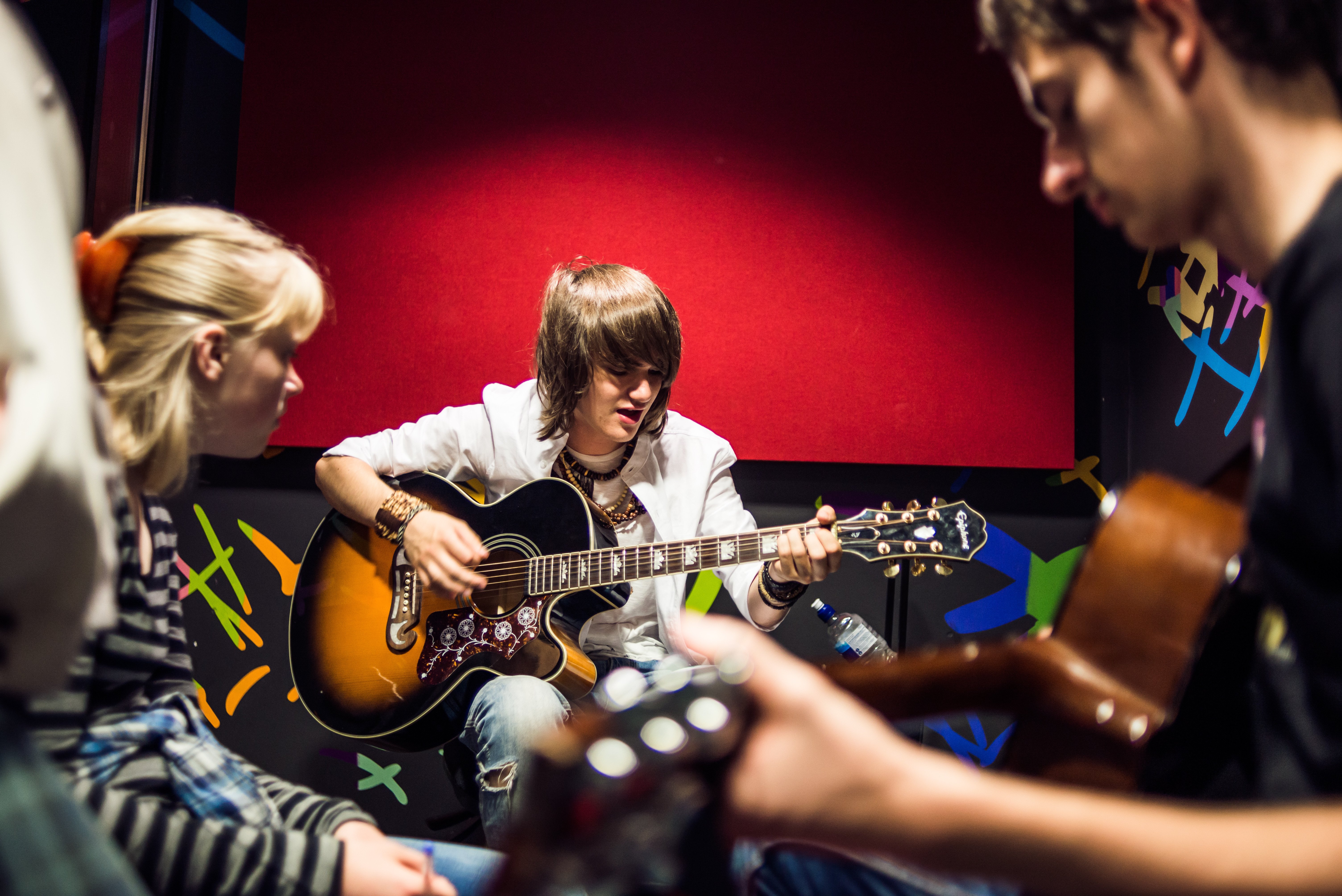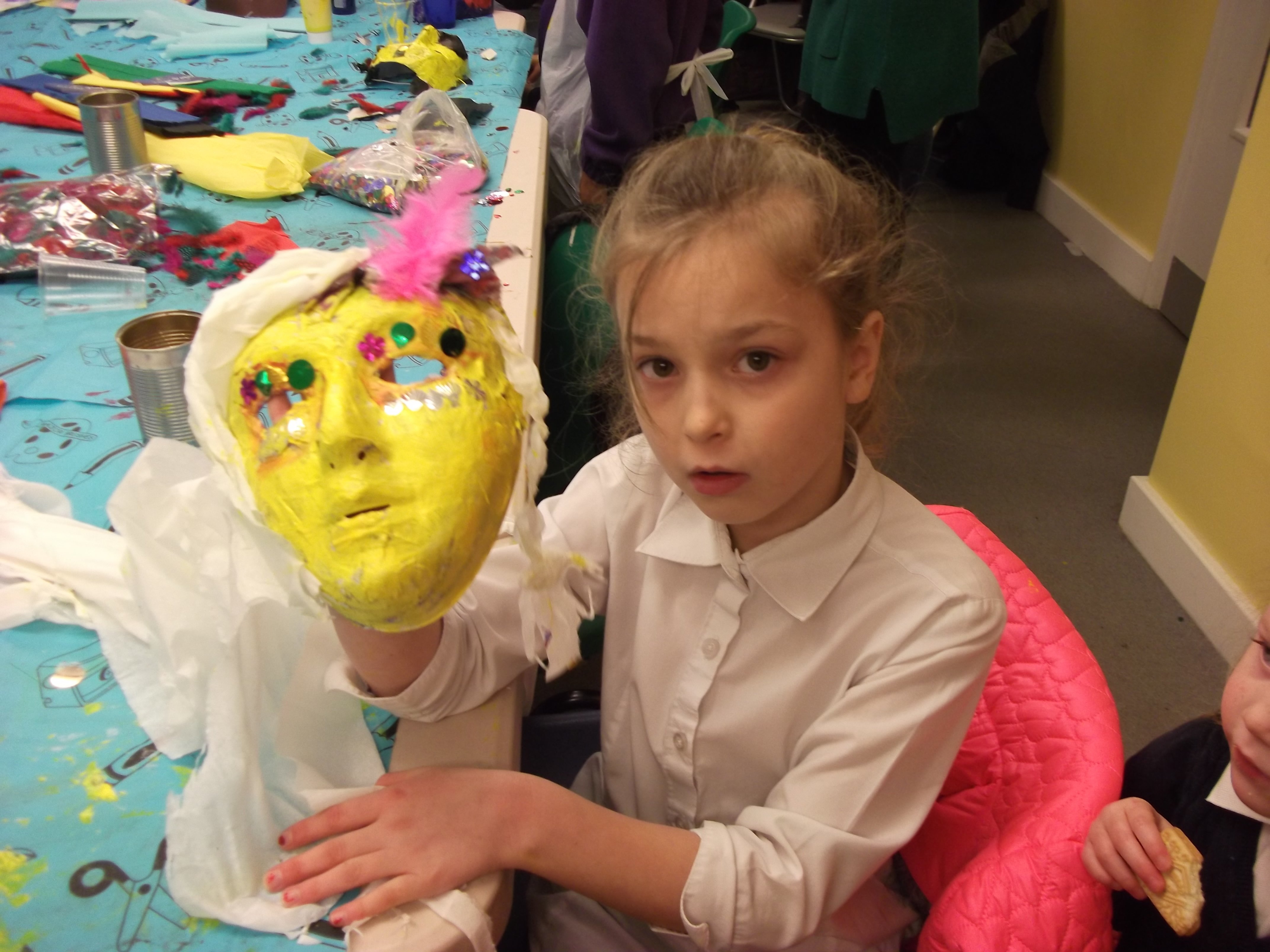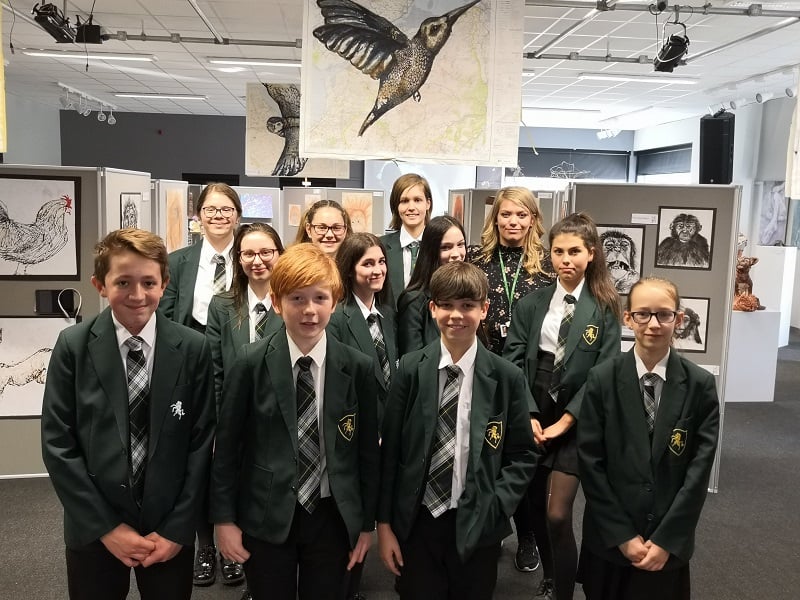
Top tips for using Arts Award with young people who are NEET
BY: Guest Writer
01 Apr 2015
OnTrack is a Roundhouse programme for young people aged 18-25 years old and not in employment, education or training. The programme has been running for over two years and aims to give participants the opportunity to meet and interview industry professionals whilst working together to create a show for a live audience. During the six-week programme young people taking part work towards achieving their Bronze Arts Award. In this blog Roundhouse share their recommendations for working with NEET young people.
Harness young people’s arts interests
Arts Award is not confined to a specific set of art forms or activities. So consult with young people and let them determine what and how they want to develop based on what they find exciting and interesting. Letting young people take ownership of their own creative direction helps to keep them engaged and committed.
Explore creative ways to collect evidence
Templates and form-filling can be useful for building portfolios but they may be off-putting for some young people, particularly those that may have struggled with mainstream education.
- Think about interesting ways to collect evidence eg creating posters and collages, writing blog posts, creating storyboards, mind maps, recording debates, or performing as radio/TV presenters to camera. If literacy is a barrier, you can film evidence, or help transcribe responses.
- If you can, show examples of creative evidencing throughout the process to inspire young people. Remind them of the Arts Award structure regularly, to avoid rushing portfolio completion at the end.
Help guide reflection
Supporting young people to reflect on what they’ve done can often be a challenge. Again, reflection sheets can be useful but won’t necessarily suit all learning styles, so you may like to consider other ways to support reflection.
- Facilitate an open discussion by using prompt questions, or asking young people to indicate how much they agree with a given statement. You could film the activity, photograph it and include captions of each young person’s key reflections
- Be mindful that confidence levels will vary and some young people may not be comfortable taking part in group discussions. If so, think about other creative ways you can support reflection. You could use online spaces, where young people can upload and share their thoughts and photos. You could add discussion topics and ask the group to add their comments.
- How about creating a ‘Progressive Poem’? Circulate a piece of paper around the group with a title that is related to your project or arts activity. The first young person writes the opening line and so on until the poem is complete. It will create a memento of the project and also reveal the young people’s feelings about the project.
Weave the awards into your programme
Make sure Arts Award is woven into arts activity and introduced early on, so that the qualification is not seen as an ‘add on’ and rushed at the end. This will also help ensure young people are engaged with the awards process throughout.
- Think carefully about how you will communicate what the qualification involves. Whilst some young people may be excited about doing a qualification, others may be wary based on previous experiences at school or college.
- Schedule in an Arts Award introduction. You can play games in pairs or small groups, and get the young people to reflect on the skills needed and what they’d like to focus their award on. This demonstrates that Arts Award is fun, sociable and achievable.
- Time for portfolio building can be slotted into the last hour of each arts session, allowing for the portfolio creation to take place gradually, rather than only at the end of the project. This way the evidence will be richer, and you won’t have as much chasing to do at the end of the project.
Have back-up plans for young people who miss sessions
It’s entirely possible that some young people will miss some sessions. You need to make sure you’re able to support them to catch up.
- If you have different groups working simultaneously, prepare ‘overlap activities’ to allow young people who’ve missed sessions to catch up.
- Offer multiple trips to arts events throughout the programme in order to maximise attendance. Make sure these take place before the relevant part of the award (eg Bronze Part B) needs to be completed.
- Help to foster a sense of group work by planning debates and collaborative games, but also plan for individual working time for the young people to progress at their own pace. Young people may also need one-to-one support and you should schedule this in where necessary
- Be clear with attendance requirements. You could highlight a ‘cut off point’ where young people can risk being removed from the course if they miss a certain number of sessions.
Share your plans and progress with colleagues If you are working with other organisations or young people’s stakeholders (eg social workers, parents, teachers), it’s important you have a common vision for what you want to achieve, and communicate with each other.
If you are working with other organisations or young people’s stakeholders (eg social workers, parents, teachers), it’s important you have a common vision for what you want to achieve, and communicate with each other.
- Build in plenty of time for staff planning and debrief sessions, especially with large teams and cross sector partnerships.
- Make sure you work in conjunction with artist facilitators and support staff when creating the project timetable, so you all have the same expectations.
- You could keep an ongoing list/diary of what is achieved each week to keep your colleagues updated.
Make the most of limited resources
Limited resources are a potential barrier for organisations working in informal learning environments but there are many ways to tackle this creatively.
- Find low cost materials eg use post-it notes to record opinions and reflections; create hand-drawn A3 posters (eg to present information about artists and arts organisations); explore free local arts events (check out Arts Award Supporters)
- Young people can film responses, thoughts and opinions on their phones to capture first impressions and start thinking reflective!
- Peer to peer interviews are a good way of supporting groups without large numbers of staff. Getting young people to interview each other can help complete different parts of the awards, and also encourages stronger communication skills.
- You may only be able to work with a small number of artists/practitioners, so think carefully about who is going to be best to engage your group. For example, young people may have particular requirements and will need to work with facilitators experienced in working with similar groups. Doing your research will pay off and ensure the young people have the highest quality experience possible.
Maximise opportunities to develop employability skills
As well as using the awards to develop literacy and communication through reflection and collecting evidence, you can build in other specific work-related skills, such as:
Teamwork / budgeting / leadership and management / risk assessment / marketing / time-keeping
- Silver and Gold are structured to encourage young people to explore careers and pathways in the arts, and develop project leadership skills. You can also incorporate these into other Arts Award levels as well: for example, at Future Steps in Brighton, young people took responsibility for planning the trip for Bronze Part B, including researching local events, managing the budget, and doing risk assessment.
- When finding out about artists, young people can research their careers, training and how they got to where they are today, and use this to reflect on and plan their aspirations for their own futures. This could include creating a personal action plan.
- If employability is a focus of your project, you might like to consider a CV workshop. Young people can add the skills they’re developing through their Arts Award.
- When planning Silver and Gold Unit 2 leadership projects, a good way to develop employability skills and interview confidence is to ask the young people to write their own job description for the project, and then get ‘interviewed’ for the role. This will help young people develop their interview technique.
Related posts
BY: Cathy Thornhill

BY: Guest Writer
BY: Julie Neville



Comments & Replies